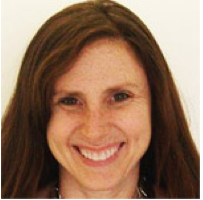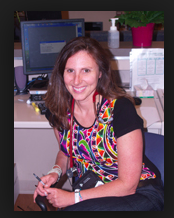 Dr Daphna Grossman wants to set the record straight
Dr Daphna Grossman wants to set the record straight
“In healthcare it seems we talk about ‘doing everything’ or ‘doing nothing’. With Palliative care ‘nothing’ is not an option.
Certainly there are standards and recommendations and then there’s the Art of Treatment: our goal is to treat the whole person – physical, psychological spiritual and social. We look at a person’s goal of care. Can this goal be achieved? Not all illnesses can be cured however, symptoms can be alleviated.”
Dr. Grossman is a Palliative Care Doctor at North York General Hospital, co-lead for the supportive care program, and involved in research and teaching. She paints this picture:
“If we only treat patients in terms of their physical issues such as addressing their test results it’s like looking at a picture in black and white. We need to also address the context, the person, who they are, and what is important to them to paint a picture that is in colour.”
The thing is, people,often perceive Palliative Care as a euphemism for on the doorstep of death, where nothing more will be done. Nothing can be further from the truth.
“People often feel afraid – they feel they’re going to be abandoned if they don’t choose life saving or life prolonging treatment. Instead, we have to make sure it’s understood you’re going to be cared for in a different way, but make no mistake you’ll be cared for and treated.”
In my TEDtalk:Exit Laughing I describe Palliative as ‘Comfort Care’, as I do on the BestEndings AdvanceDirective. (also known as Living Will). Daphna Grossman does one better:
“Palliative care is just good patient care. The Palliative Square covers Physical, Emotional, Social and Spiritual needs.”
Palliative care may bring certainty of whole person care, but that also makes treatment complex.
“There is no absolute, it’s very fluid. There’s no such thing as ‘always’ or ‘never’. That’s what I love about it: I move along with the patients’ state of health, doing what’s most appropriate for the situation based on their goals of care. I get a sense of who patients are – Palliative is a philosophy of care that ensure the person is at the centre of his/her care.”
Dr Grossman cautions:
“It’s never just one conversation – it’s building up a base. Decisions are made through a series of situations. It’s a process: someone is hospitalized several times with pneumonia may come to a point where it’s clear that treatment with antibiotics in an acute care setting is no longer what s/he wants. There may be the realization it’s time to look at comfort care.”
Before a DNR is ever in question, Dr Grossman tries to determine patients’ value and beliefs.
“I’ll ask: ‘what are you most afraid of?’ The patient says ‘gagging’ and I agree that’s awful. Here’s what we can do. In this way, you build trust and knowledge.”
In conversations, tone and language have a huge impact.
“If you say: stop your medications and you’ll die” that has a much different impact than saying, “Let’s talk about what would happen if you stop your medications.”
I ask about my own worry: if my beloved 94-year old father-in-law collapses in our presence. He has a DNR. Does this mean we should or shouldn’t get him to a hospital pronto?
“If he has severe pains or severe shortness of breath – of course you’re going to get him to the hospital for help. But the ‘Goal of Care’ would define what he wants his care to look like. Perhaps his goals is to treat pain and discomfort only, and then, when he’s comfortable, to get back home.”
Patients and families who do understand the focus and philosophy of Palliative care ask for a referral “when they’re fed up, or they’ve have ‘had it’– they’ve just had enough of treatments and procedures which may no longer have a significant effect but may be frought with side effects.
Part of the palliative arsenal is medications: lists and lists for every system in the body: Digestive, respiratory (breathing), musculoskeletal (arthritis) brain, heart:
“Meds need to be treated with respect. It’s so important to remember that all medications are complex, and made more complex by the individual’s health situation – for example, if there’s a kidney or liver dis-function, or if there is a significant risk of delirium.
“I don’t have all the answers, so I consult with colleagues. We work hard on dignity and respect amongst the team members. When I consult a Geriatric psychiatric for example, we get a chance to understand and see things, through each other’s eyes, and together make amendments.”
Of the tricky topic of morphine (opioids), Dr Grossman reminds that closely watching and adjusting is a requirement for many medications, such as insulin, blood pressure medications and blood thinner.
Where Palliative Care decisions are made thoughtfully, and taking the whole person into account, the one absolute, according to Dr Grossman:
“We want to avoid making a decision in a crisis – when something bad is happening– it’s the worst possible time.”
suggested explorations: Music Therapy
Organ Donations: Myths and Realities
